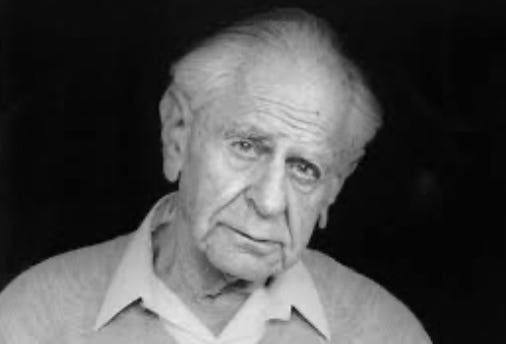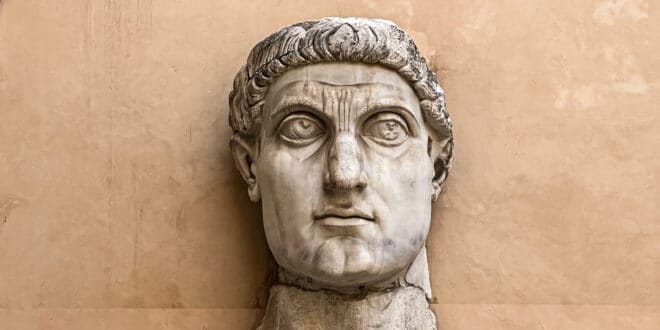WHY I AM A PAGAN
Recently, when I’ve had conversations about god, I’ve had the funny feeling that whomever I’m talking to means something very different with the term than I do.
In the modern West, when people talk about god, they seem to have in mind a single all-encompassing deity, and the ‘existence of god’ is understood as an either/or proposition.
But when I say ‘god,’ I mean something very different. I mean nature, basically, and the particular type of intelligence and material — flexible yet tough — that seems to shape so much of nature and to guide life through it. To live a ‘good life,’ then, generally means to really listen in to nature, and to align one’s energies accordingly.
What I am describing — this conception of divinity — of course has a name, which is paganism. Paganism is ancient and close to universal and it only seems simple, or inane, when we are the ones who are treating it literally. Ancient peoples’ renderings of Zeus or Hera or whatever almost certainly weren’t meant to be depictions of literal flesh-and-blood deities anymore than anyone thinks that the paintings on the Sistine Chapel walls are what God actually looks like. The anthropomorphized pagan deities were representations of different types of energy, which means that they were representations of different ‘domains.’
And the real wisdom of the pagan sensibility is that the domains were understood to operate very differently, to have fundamentally different truths to them. Ares and Aphrodite, for instance, were very different people; the energy required to carry oneself in love or war were very different from each other. The vision of the world, then, when one is thinking in this way is distinct from the monotheistic conception, in which a single monarch of a deity presides equitably over the entirety of existence; instead, in paganism, a person enters at different moments of their life into the various domains (which, often, are symbolized as distinct temples), makes sacrifices to them, aligns their energies with the particular contours of each domain. The premise, then, is remote from that of the ‘good’ or ‘bad’ person of the monotheistic religions — the person whose soul will ultimately be held in balance and judged. Instead, in the pagan worldview, a person is multiple, a person can be a lover, a fighter, a craftsman, whatever it is, and their worth is assessed only by how they comport themselves in each of these various roles, these different sides of themselves — a bit the way you might evaluate an actor.
What is being described here has its 20th century equivalent in Karl Popper’s idea of pluralism — in the premise that there may be multiple truths, multiple systems of thought that work perfectly well according to their own inner logic, and that history, then, is not a linear, self-fulfilling path. Popper was arguing against the modern ideologies, with their ‘historicist’ perspectives and their in-built eschatologies. But those ideologies — Communism, Baconianism, etc — were, as Popper well understood, simply updates of a monotheistic sensibility. History had been placed on a linear continuum and end-times would reveal the fundamental truth of God. Modern ideologues — Bacon, Rousseau, Marx — had just taken out the Christian content and inserted some secular fantasy instead.
Popper, in the wake of the clear failure of the historicist narratives, advocated undoing that mental knot — understanding the multiplicity of truths and the viability of multiple types of social systems. I would make the case for undoing another type of mental knot — the idea that divinity is a totality, that god is all or nothing. These were — as Joseph Henrich cunningly argues in his The Weirdest People in the World — artifacts of a particular moment in history, around the start of the Common Era, when societies were becoming larger and a larger, omnipotent God was, very simply, an attractive point of consensus, a way of building alliances between different tribal systems — which was, fundamentally, the sales pitch of the Catholic Church.
It was very often the rulers who took the plunge and allowed themselves and their peoples to be converted to Christianity, while ordinary people clung secretly and steadfastly to paganism. The two were operating from very different places. The rulers were looking for a language of power — and the notion of the one all-encompassing God was attractive enough and easy to communicate. But ordinary people found then, as they did for many centuries afterwards, that pagan conceptions spoke best to the warp-and-woof, to the actual experience of lived life — the many different phases that any single person would go through, the many different energies they would take in, the irreducible complexity of the world filled with gods.
More and more, I’ve been noticing the beauty and sophistication of paganism and have felt a poverty in the present-day debates we have about divinity — the four horsemen of atheism and so on — which seems always to assume a single omnipresent entity. Paganism did have a surprising afterlife in the 20th century when Freud and Jung discovered it to be an apt metaphor for psychological states, but my sense is that it goes well beyond that. Paganism was an extremely evolved (millennia-evolved) metaphorical system for describing the multiplicity of the human psyche, the dizzying range of experiences that humans have. The distant god off in the sky is anemic by comparison. It’s time to take in some of the wisdom of paganism, to recognize it as the complex expressive instrument that it is, and — when we have our theological discussions — to recognize that they are not just claims about what is or isn’t, that the conception of divinity is fundamentally about trying to say something on ourselves and our relationship to the world, and is, more than anything else, art.




“I regard monotheism as the greatest disaster ever to befall the human race. I see no good in Judaism, Christianity, or Islam -- good people, yes, but any religion based on a single, well, frenzied and virulent god, is not as useful to the human race as, say, Confucianism, which is not a religion but an ethical and educational system.”--Gore Vidal
Pagans had an ideal of some unknowable ultimately unifying thing. They called it the Logos. Theoretical physicists might call it the Singularity. But, like the Buddhists, pagans also know no human thought is capable of understanding it in a way that could be accurately communicated by means of the spoken or written word.
Fighting wars and massacring entire populations over the meaning of words in books long dead people wrote centuries ago never made any sense to me.
Agree with all and appreciate your reading of Popper. Perhaps we can begin to admit we humans are not monotheistic informed fixed multicultures but open weave fluid polycultures?